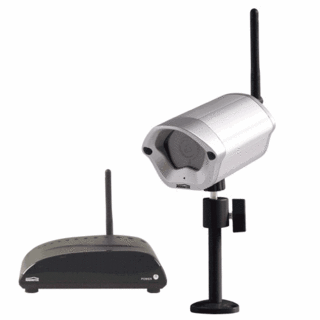The battle between Microsoft, RealNetworks and other streaming software companies is moving from the desktop to the cell phone.
Published:
24 February 2001 y., Saturday
As the companies jockey for position in the wireless world, the race is on to secure critical partnerships with manufacturers and chipmakers to beam music, newscasts and other data to next-generation handheld devices.
Streaming technology allows people to tap into audio and video without having to download large files. Like many other Internet players, streaming software companies see cell phones as devices that will let them step away from the confines of desktop PCs. Going mobile has the potential to resolve some standards issues that have plagued streaming technology thus far, analysts say, but it will likely take time to convince consumers that cell phones are ideal for watching videos and listening to music.
Still, streaming software companies are preparing for the day the market takes off. Just this week, Microsoft said it would team with Texas Instruments to support Windows Media audio, video and digital rights management technology on the chipmaker's DSP-based processors for wireless Internet devices. The collaboration will allow mobile phone manufacturers to offer Windows Media Player on new products.
The announcement follows a key partnership with NTT DoCoMo to serve up Windows Media on a device dubbed Eggy. About 60 devices now support Microsoft's digital music software, said Michael Aldridge, lead product manager for Microsoft's Windows digital media division.
RealNetworks has struck a similar deal with Texas Instruments that lets its audio players run on wireless devices. The Seattle-based company also scored a deal with Nokia last year, in which the RealPlayer technology will be bundled in Nokia's new smart phones.
Šaltinis:
CNET News.com
Copying, publishing, announcing any information from the News.lt portal without written permission of News.lt editorial office is prohibited.
The most popular articles
Software company announced new structure_ of it_s business.
more »
 Just a few weeks ago, the world's tiniest video camera was as small as a grain of rice. Today, the world's NanoEst camera is even smaller.
more »
Just a few weeks ago, the world's tiniest video camera was as small as a grain of rice. Today, the world's NanoEst camera is even smaller.
more »
 During the experiment two research groups managed to overcome a symbolic 100 TB/s optical fiber data transmission speed limit.
more »
During the experiment two research groups managed to overcome a symbolic 100 TB/s optical fiber data transmission speed limit.
more »
 Apple’s long–awaited online storage service for iTunes could be named iCloud, if only rumours are to be believed.
more »
Apple’s long–awaited online storage service for iTunes could be named iCloud, if only rumours are to be believed.
more »
 The founders of video-sharing site YouTube have bought bookmarking service Delicious from Yahoo.
more »
The founders of video-sharing site YouTube have bought bookmarking service Delicious from Yahoo.
more »
 The successful raid by hackers on Sony’s PlayStation Network is already being ranked among the biggest data thefts of all time.
more »
The successful raid by hackers on Sony’s PlayStation Network is already being ranked among the biggest data thefts of all time.
more »
 Apple has denied that its iPhones and 3G iPads have been secretly recording their owners' movements.
more »
Apple has denied that its iPhones and 3G iPads have been secretly recording their owners' movements.
more »
 Customers who have waited nearly 10 months for the white version of the iPhone 4 won’t have to wait much longer. The Great White iPhone 4 is finally here.
more »
Customers who have waited nearly 10 months for the white version of the iPhone 4 won’t have to wait much longer. The Great White iPhone 4 is finally here.
more »
 Researchers at Georgia Tech University are teaching a robot the basics of dialogue. Named "Simon", the robot has already been taught how to attract a person's attention but eventually, it's hoped he'll be able to interact and converse with humans in daily life.
more »
Researchers at Georgia Tech University are teaching a robot the basics of dialogue. Named "Simon", the robot has already been taught how to attract a person's attention but eventually, it's hoped he'll be able to interact and converse with humans in daily life.
more »
 3D? Terribly lame when it's tossed into devices as a bullet point feature. Trimensional for iPhone takes a picture of your face and maps your mug in a 3D model.
more »
3D? Terribly lame when it's tossed into devices as a bullet point feature. Trimensional for iPhone takes a picture of your face and maps your mug in a 3D model.
more »
 The European Union is to investigate whether internet service providers (ISPs) are providing fair access to online services.
more »
The European Union is to investigate whether internet service providers (ISPs) are providing fair access to online services.
more »